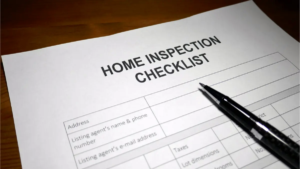Home Sale Proceeds Calculator
Use our home sale calculator to estimate the cost of selling and the net proceeds you could earn from the sale. Find out how much money you can make by selling your house!
Home Sale Calculator Starting form. Basic calculated fields sample.
Staging and prep work
Potential buyers may request concessions when selling your home, typically limited to 0 – 2% of the home sale price. These concessions help cover specific costs associated with the loan type and downpayment sizes, such as common costs and incidental closing costs.
Total cost to sell
Calculating the total cost of selling your home involves considering various expenses associated with the sale. These expenses include real estate agent commissions, attorney fees, title fees, property taxes, transfer taxes, closing fees, moving costs, and other costs that may arise during the process. It’s essential to account for potential escrow fees charged by the escrow company, as they assist in managing the sale at the time of closing and ensure a smooth transaction.
Mortgage
Your mortgage payments and the information in your mortgage statement are crucial when you sell your home. The outstanding mortgage balance, as stated in your mortgage statement, represents the amount of money you owe on your mortgage. Settle the remaining balance, the mortgage payoff, before completing the sale to fulfill your mortgage obligation. Consider your current mortgage balance, as stated in your mortgage statement, when calculating the net proceeds from the sale.
The Price of the House and Its Impact on Final Profits
The selling price of your house plays a significant role in determining the final profits you can achieve. Setting the right price requires carefully analyzing the current housing market and thoroughly understanding your property’s value. A comparative market analysis can provide valuable insights into recent sales of similar properties in your area, helping you gauge the market trends and make an informed decision.
The housing market is dynamic and can experience fluctuations in demand and supply. Pricing your house competitively based on the comparative market analysis allows you to attract potential buyers and increase the likelihood of a successful sale. Setting the price too high may deter buyers, prolong the time on the market, or lead to price reductions.
It’s essential to strike the right balance and consider various factors that impact the value of your property. Location, size, condition, amenities, and recent upgrades can influence the market value. Market conditions, such as buyer demand and available inventory, can also affect pricing strategies. Keeping a pulse on the housing market trends can help you make informed decisions when setting the selling price of your house.
By pricing your house accurately based on the comparative market analysis and staying informed about the housing market, you can optimize your chances of maximizing the final profits from the sale. Remember, working with a knowledgeable real estate agent with expertise in your local market can provide invaluable guidance in determining the optimal selling price for your house.
Remember that pricing your house appropriately is just one aspect of the home-selling process. Other factors, such as the cost of selling, including commissions, fees, closing costs, and potential negotiation with buyers, should be considered to achieve the best overall outcome. Consulting with real estate professionals and utilizing market data can help you navigate the intricacies of the housing market and make informed decisions to maximize your final profits.
How to calculate profit on a home sale
Calculating the profit from an actual home sale involves subtracting the home’s total cost from the money received through the sale (purchase price). Follow these steps to calculate the profit:
Determine the home’s sale price: This is the actual price for which your home is sold.
Calculate the home’s cost basis: The cost basis includes the home’s original purchase price and any capital improvements you made during ownership. Subtracting the cost basis from the sale price will give you the potential profit.
Calculate the selling and closing costs: These costs encompass real estate fees, attorney fees, title fees, annual property taxes, transfer taxes, closing fees, seller closing costs, incidental closing costs, and other additional expenses related to the home sale. Additionally, consider any escrow fees charged by the escrow company to facilitate the sale.
Subtract the cost basis and selling costs from the sale price: This calculation will provide you with the profit from the home sale. Remember that seller closing costs and other expenses may be negotiated with the potential buyers at the time of closing.
The formula to calculate profit on a home sale is:
Profit = Sale Price – (Cost Basis + Selling Costs)
Various factors and additional costs can impact the profit, such as the outstanding mortgage balance, mortgage payoff costs, selling broker commission, and capital gains taxes. The due mortgage balance refers to the amount you still owe on your mortgage. To complete the sale, it’s necessary to pay off this balance. Additionally, consider capital gains taxes, taxes imposed on the profit earned from selling your home. These taxes depend on the difference between the sale price and the cost basis.
We recommend consulting a professional to obtain a more accurate estimate of your potential profit from a home sale. They can help you understand the true costs involved, provide rough estimates based on average costs and national averages, and guide you through the process, including considerations like real estate commissions, seller closing costs, equity loans, and the specific requirements at the time of closing. Additionally, remember to factor in the cost of title insurance, which protects the buyer and lender against any potential issues with the property’s title.
Thinking of Selling Your Home: Join The Movement
What to Consider When Thinking of Selling Your Home Thinking...
Read MoreSelling a House For Job Relocation: A Smarter Way
Selling Your House For Job Relocation Selling your house due...
Read MoreRemodel or Move: Ultimate Guide to Making the Right Decision
Is It Better to Remodel or Move? Deciding whether to...
Read MoreShould I sell my House and Rent When I Retire?
As retirement approaches, many people face deciding whether to sell...
Read MoreHow Hard Is It to Sell Your Own House with Our Property Team?
Discover the simplified and comprehensive approach to addressing the question,...
Read MoreWhat is Tax Assessment on Zillow? A Detailed Guide
In today’s real estate market, understanding the financial aspects of...
Read MoreDoes a Garage Count as Square Footage?
Every square foot counts when buying or selling a home,...
Read MoreSelling a House Below Market Value: Everything You Need to Know
Selling a house under market value can be a strategic...
Read MoreUltimate Guide to Home Appraisal Costs: What You Need to Know
Definition of Home Appraisal A home appraisal is an essential...
Read MoreHow to Price Your Home to Sell: Ultimate Guide
How to Price Your Home to Sell Unsure how to...
Read MoreHow Long to Wait Before House Price Reduction – When to Drop Home Price Lower
When determining how long to wait before reducing the price...
Read MoreHow much above appraisal should I list my house?
Understanding Appraisals When selling a house, understanding the appraisal process...
Read MoreFlat Fee: Everything you need to know
What is a Flat Fee? Traditionally, homeowners would hire a...
Read MoreHow to List on MLS by Owner: Full Comprehensive Guide
What is an MLS Listing? An MLS listing is a...
Read MoreThe Powerful Prayer to St Joseph to Sell House
Selling a house is an exciting endeavor filled with possibilities....
Read MoreClosing Costs for Sellers: Everything You Need to Know
Closing costs for sellers can vary depending on location, property...
Read MoreHow to Prepare for a Home Inspection – Expert Advice
What is a Home Inspection? A home inspection thoroughly evaluates...
Read MoreWhy Pending Home Sales Fall Through: Avoid These Mistakes
What is a Pending Home Sale? A pending home sale...
Read MoreShould I sell my House to an Investor?
Unsure if you should sell your house to an investor?...
Read More


















